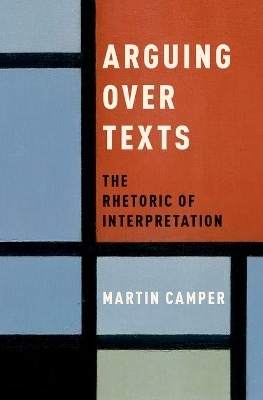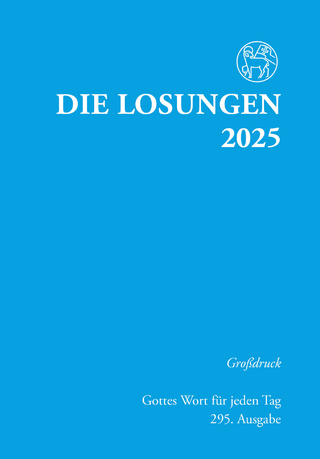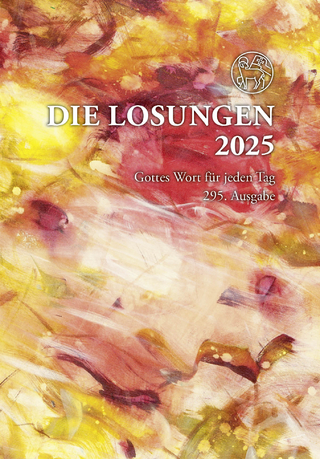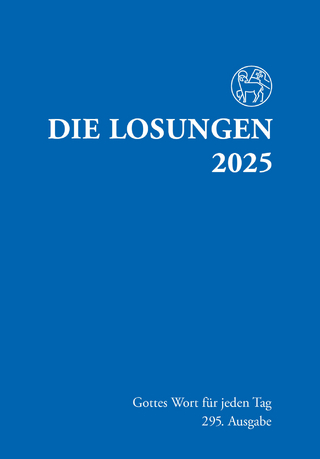
Arguing over Texts
The Rhetoric of Interpretation
Seiten
2017
Oxford University Press Inc (Verlag)
978-0-19-067712-1 (ISBN)
Oxford University Press Inc (Verlag)
978-0-19-067712-1 (ISBN)
Building on the interpretive stases from the ancient Greco-Roman rhetorical tradition, Arguing over Texts presents a method for analyzing the types of disagreement people have over textual meaning and the lines of argument they use to resolve those disagreements in various contexts, including law, politics, religion, history, and literary criticism.
From the Constitution to the Bible, from literary classics to political sound bites, our modern lives are filled with numerous texts that govern and influence our behavior and beliefs. Whether in the courtrooms of our judiciaries or over our dining room tables, we argue over what these texts mean as we apply them to our lives. Various schools of hermeneutics offer theories of how we generally understand the world around us or how to read certain types of texts to arrive at the correct or best interpretation, but most neglect the argumentative and persuasive nature of every act of interpretation.
In Arguing over Texts, Martin Camper presents a rhetorical method for understanding the types of disagreement people have over the meaning of texts and the lines of argument they use to resolve those disagreements. Camper's fresh approach has its roots in the long forgotten interpretive stases, originally devised by ancient Greek and Roman teachers of rhetoric for inventing courtroom arguments concerning the meaning of legal documents such as wills, laws, and contracts. The interpretive stases identify general, recurring debates over textual meaning and catalogue the lines of reasoning arguers may employ to support their preferred interpretations. Drawing on contemporary research in language, persuasion, and cognition, Camper expands the scope of the interpretive stases to cover textual controversies in virtually any context. To illustrate the interpretive stases' wide range of applicability, Arguing over Texts contains examples of interpretive debates from law, politics, religion, history, and literary criticism.
Arguing over Texts will appeal to anyone who is interested in analyzing and constructing interpretive arguments.
From the Constitution to the Bible, from literary classics to political sound bites, our modern lives are filled with numerous texts that govern and influence our behavior and beliefs. Whether in the courtrooms of our judiciaries or over our dining room tables, we argue over what these texts mean as we apply them to our lives. Various schools of hermeneutics offer theories of how we generally understand the world around us or how to read certain types of texts to arrive at the correct or best interpretation, but most neglect the argumentative and persuasive nature of every act of interpretation.
In Arguing over Texts, Martin Camper presents a rhetorical method for understanding the types of disagreement people have over the meaning of texts and the lines of argument they use to resolve those disagreements. Camper's fresh approach has its roots in the long forgotten interpretive stases, originally devised by ancient Greek and Roman teachers of rhetoric for inventing courtroom arguments concerning the meaning of legal documents such as wills, laws, and contracts. The interpretive stases identify general, recurring debates over textual meaning and catalogue the lines of reasoning arguers may employ to support their preferred interpretations. Drawing on contemporary research in language, persuasion, and cognition, Camper expands the scope of the interpretive stases to cover textual controversies in virtually any context. To illustrate the interpretive stases' wide range of applicability, Arguing over Texts contains examples of interpretive debates from law, politics, religion, history, and literary criticism.
Arguing over Texts will appeal to anyone who is interested in analyzing and constructing interpretive arguments.
Martin Camper is Assistant Professor of Writing at Loyola University Maryland, where he teaches courses in rhetoric, writing, argument, and style. He researches and publishes in the history of rhetoric, rhetorical and argumentation theory, the rhetoric of religion, and college writing.
Chapter 1: The Interpretive Stases: A Theory of How People Argue over Texts
Chapter 2: Ambiguity
Chapter 3: Definition
Chapter 4: Letter versus Spirit
Chapter 5: Conflicting Passages
Chapter 6: Assimilation
Chapter 7: Jurisdiction
Chapter 8: Opening, Closing, and Moving through Interpretive Disputes
| Erscheinungsdatum | 09.11.2017 |
|---|---|
| Verlagsort | New York |
| Sprache | englisch |
| Maße | 236 x 155 mm |
| Gewicht | 454 g |
| Themenwelt | Religion / Theologie ► Christentum ► Gebete / Lieder / Meditationen |
| Geisteswissenschaften ► Sprach- / Literaturwissenschaft ► Anglistik / Amerikanistik | |
| Geisteswissenschaften ► Sprach- / Literaturwissenschaft ► Literaturwissenschaft | |
| Geisteswissenschaften ► Sprach- / Literaturwissenschaft ► Sprachwissenschaft | |
| Sozialwissenschaften ► Soziologie | |
| ISBN-10 | 0-19-067712-0 / 0190677120 |
| ISBN-13 | 978-0-19-067712-1 / 9780190677121 |
| Zustand | Neuware |
| Haben Sie eine Frage zum Produkt? |
Mehr entdecken
aus dem Bereich
aus dem Bereich
Grossdruck Softcover
Buch | Softcover (2024)
Reinhardt, Friedrich (Verlag)
CHF 14,50
Geschenkausgabe. Normalschrift
Buch (2024)
Reinhardt, Friedrich (Verlag)
CHF 9,50
Normalausgabe Deutschland
Buch | Softcover (2024)
Reinhardt, Friedrich (Verlag)
CHF 11,80


